#Korean language
Text
Seventeen's Dialects
For a very tiny country, South Korea has many distinct dialects (6 major ones to be exact). And so I wanted to share with yall the different dialects used by Seventeen members! (especially seungkwan cuz its so cool)
Gyeongsang Dialect: this dialect is by far the most popularized and well-known Korean dialect. it's mainly characterized by its aggressive, fast-paced, and strongly emphasized sounds. it's also pitch-accented, meaning you can hear the different intonations and stresses on syllables. there are also subtle differences between different gyeongsang-do cities that native speakers of the dialect can easily hear and tell apart.
Woozi - Woozi is from Busan, where the accent falls on the back syllable and the "g" (ㄱ) is used more. his accent doesn't really jump out often but every now and then you can hear a slightttt tinge of the dialect. in BTS Suga's Suchwita episode 10 with Woozi theres a part where Suga (as a fellow gyeongsang-do born) is able to immediately tell that Woozi is from gyeongsang by his intonation.
S.Coups - on the other hand, S.coups is from Daegu, where the accent falls on the front syllable and the "k" (ㅋ) sound is used more. as you can see, even though s.coups and woozi are both from gyeongsang, their different cities means their accents are a bit different. in fact, the busan dialect evolved in order for people to be able to hear what is being said over water better whereas the daegu dialect evolved to be able to travel through the air better. s.coups' accent jumps out quite often in varying degrees. sometimes its very obvious and other times it's more subtle, but overall you can definitely notice it if you listen close enough.
Wonwoo - unlike the other two, wonwoo is from Changwon, so neither Busan or Daegu (the 2 most prominent gyeongsang-do cities). i don't have enough experience to know anything in particular about the changwon dialect but i assume that it's basically the same as the busan dialect since it's pretty close to there. from what I personally hear, I think wonwoo's dialect is definitely the most recognizable and frequent out of the 3 gyeongsang members. i feel like every other sentence he says has a bit of the accent thrown in naturally.
Jeolla Dialect: the jeolla dialect also has many different pitches and intonations used and is mainly characterized by its warm and kind sounding tone. vowels are the emphasis and are dragged out/lengthened, giving speakers of this dialect a very affectionate, smooth, and melodic voice.
Dino - dino likes to whip out his dialect here and there, especially when joking around and having fun with the other members. dino's accent comes out the most by far whenever he turns into his boomer character, Pi Cheolin! so basically any Pi Cheolin clip is just dino speaking in jeolla dialect.
Jeju Dialect (language): this dialect of Korean is so vastly different from the rest of the dialects that it's basically completely unintelligible to other Koreans. because of this, many people even say that the Jeju dialect is actually a language of its own. really, the jeju dialect seems to be officially classified as a "language dialect". to add on, this dialect is also classified as a critically endangered language by UNESCO which is definitely very worrying.
Seungkwan - even though he is from Jeju Island, there has never really been a time where he ever spoke in the Jeju dialect in front of the camera. so unfortunately there's no examples I can give regarding Seungkwan....atleast thats what I thought. after some more digging on the korean side of the internet it turns out there are a few clips of him speaking in the jeju language! heres one of them:
youtube
The rest of the members speak in just the Standard Korean dialect (Gyeonggi) btw
#seventeen#going seventeen#korean language#korean linguistics#koreanlanguage#korean#kpop#seungkwan#svt#boo seungkwan#s.coups#choi seungcheol#svt dino#wonwoo#woozi#svt woozi#lee jihoon#svt bss#bss#dialect#language learning#language#language stuff#linguistics#south korea#busan#daegu#Youtube
25 notes
·
View notes
Text
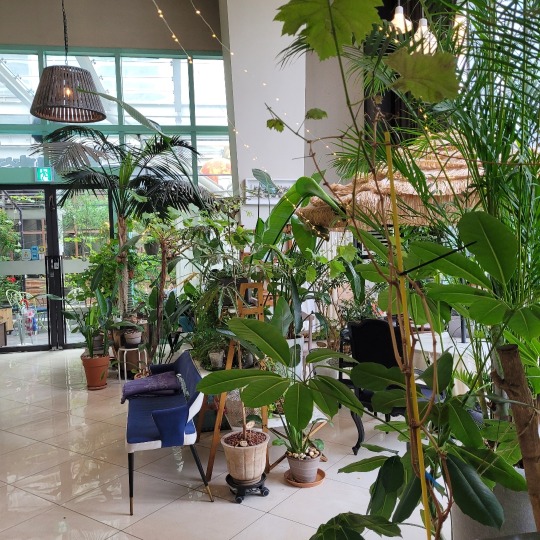
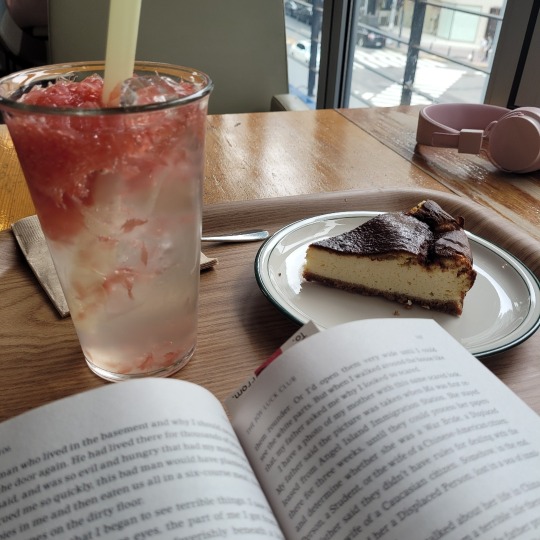
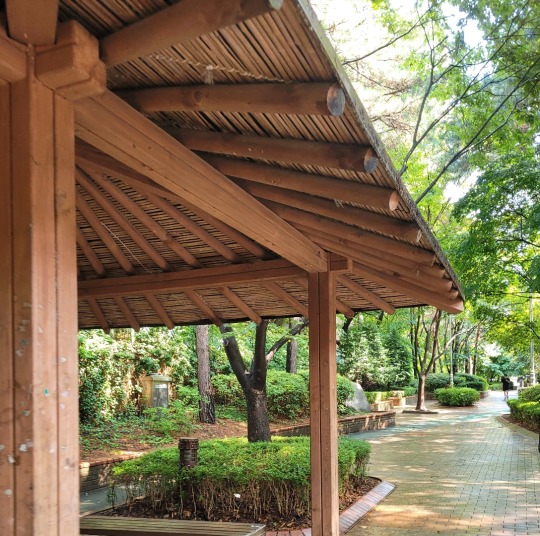
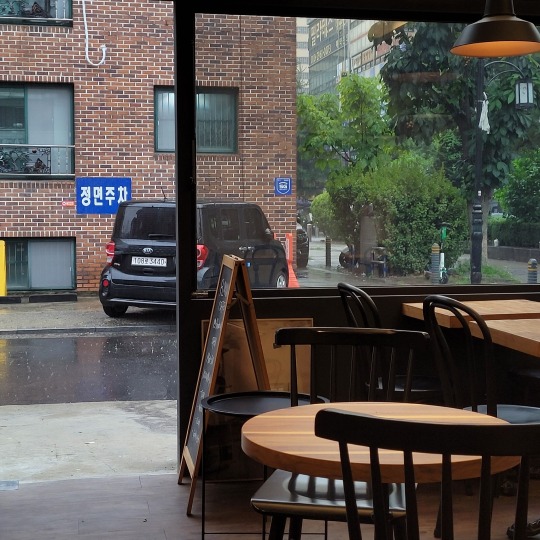
📖07.09.23📖
Another busy study day in SK. Got in another five study chapters and took the scenic route to a new favourite café! Also almost finished another physical read but got horrendously distracted by my criminal minds rewatch...
📖 = Joy Luck Club by Amy Tan
🎧 = To You by Seventeen
#studyblr#aesthetic#bujo#bookblr#books#studyspo#study#study motivation#100 days of productivity#studying#korean cafe#korean language#korea travel#koreanlearning#Korea#korean langblr#langblr#rainymood#light academia
2K notes
·
View notes
Text
more context for 악어(acau)'s translation (troubles? future troubles?)!
@blockgamepirate mentioned pronouns in context of translation in a reblog and that got me thinking about a bunch of things lmao but mostly about 반말 (banmal).
악어 decided really early on into his experience with the translator to try to use banmal bc he felt like the translator was picking up on it better, and he probably thought this because of two things:
banmal is usually shorter than 존댓말 (jondaemal) which is the polite/default way of speaking. and when i say default i mean my parents sometimes use it to refer to each other. it's more than just politeness, it's also a certain amount of respect? with younger people (high school, college, maybeeee graduate student age) people tend to use banmal with friends. older people use banmal to talk to children, and children use banmal except when talking to older people. i think the easiest way of showing just how much shorter banmal is, is to use "안녕" (korean "hello") as an example. "안녕" (annyeong) is actually banmal! you absolutely wouldn't say this to someone you've just met - you would say "안녕하세요" (annyeonghaseyo) which is jondaemal. but do you see how the second is three syllables longer? there's more of a margin of error with three more syllable and that's why the machine translator doesn't work as well with jondaemal.
The most casual way of speaking banmal uses pronouns. korean doesn't have gendered pronouns really, and the pronouns it does have seem. rude? generally? children use pronouns a lot and adults use pronouns when speaking to children but otherwise.... if you're not friends (and young honestly have yet to find an midsized (40+) adult regularly use pronouns) calling someone "you" is like. an insult. it works (that is, it doesn't feel like an insult) in 악어's stream for me because it felt like he was speaking in a significantly simpler/slower register after a while? like the register you'd use for kids. but i did want to put it out there! because if you're trying to learn korean through 악어's stream, you're probably listening to him use banmal! and that's just something to be aware of.
more pronoun thoughts! in terms of gender - korean doesn't have gendered pronouns. the closest you get in third person is something like "that girl" so machine translate will almost never get it right. it will default to masculine (in my experience) or the first person ("i" "me") so that's something to keep in mind. honestly my dad often defaults to masculine third person pronouns because he forgets pronouns are gendered in english and that there's more than one of them lmaooo. korean does gender relationships A Lot (oppa is the one that most people will know - brother from female speaker to older male listener) but pronouns wise there's. no gender oop.
i just wanted to put this out there because as 악어 becomes more a part of the qsmp community, we'll probably slowly pick up on the more regular patterns of awkward machine translation from an east asian language to english, and more specifically from korean to english. and if it's confusing that's ok! assume good faith - 악어 from what i can tell isn't a streamer who'll use insults a lot or curse, and his normal way of speaking to his audience is very soothing/polite/jondaemal, so i hope that people keep watching him throughout this introduction period!
#qsmp 악어#qsmp acau#qsmp translations#korean language#honorifics#cultural difference!#in the language!#qsmp korea
411 notes
·
View notes
Text
One-Page Masterlist
안녕하세요! Hey everyone! I recently got an ask about my old masterlist, which is the same as my broken-down masterlist except it has all of my lessons on one page, rather than on multiple separate posts. Some may find this expanded version easier to navigate, so I’ll keep this up for y’all! My broken-up masterlist, of course, will still be available for those who find that more helpful :)
Hangul Lessons
Consonants
Vowels
Writing/Reading Korean Syllables
Some 받침 Rules
Diphthongs
Stroke Order
Some More 받침 Rules
Irregular Verbs
The Basics
Common Phrases
Numbers
Sino-Korean vs. Native Korean Numbers (Instagram Post)
Sentence Structure and Particles
Present-Tense Conjugations and Formal Language
Adjectives
Questions
Honorifics and Casual Language
Beginner
Negative Sentences
잘 and 못
Past Tense
Future Tense (-ㄹ / 을 것이다)
-ㄹ / 을 까요? (Shall we…? / I wonder…?)
-(으)세요 (Giving Commands / Asking Questions)
Telling Time
-고 싶다 (I want to…)
How to Say “And”
-지만 (However)
아/어/여서 (So…)
Negative Commands
Spacing (띄어쓰기)
Adverbs
ㅂ Irregular
Comparatives and Superlatives
난, 날, & 내가
Upper-Beginner
-(으)면 (If…)
아/어/여도 (Even though…/Even if…)
(으)면 되다 / 아/어/여도 되다 (I can…/You may…)
-아/어도 되다: Asking for and Giving Permission (Instagram post)
-(으)면 되다 & -(으)면 안 되다 (Instagram post)
아/어/여야 되다 and 아/어/여야 하다(Have to / Should)
Present Progressive (-고 있다)
How to Say “Or”
-아/어/여하다
All About 중
How to Use -(으)로
Before & After
-ㄴ/은 채로
Intermediate
Describing Nouns with Verbs (-는 것)
Describing Nouns with Verbs - Past & Future Tense (-ㄴ/은 / -ㄹ/을 것)
Nominalization
것 같다 (I think… / It seems…)
-러 가다 / -러 오다
-(으)려고 (In order to…)
-기로 하다 (to Decide to do Smth)
척하다 (To Pretend)
-게 되다
-군요 / -구나
아/어/여 보다 (to try…)
-은/ㄴ 적 있다 / 없다 (I have / have not)
-ㄹ/을 게요 (Future Tense)
겠다
-ㄹ/을 수 있다/없다 (I can / cannot)
-ㄹ/을 때 (When…)
-ㄴ/는다면 (If)
-(으)면서 and -(으)며
-(으)니까 (Because / So)
-아/어/여주다
-(ㄴ/는)다 (Narrative Form)
Quoting
Let’s…
Quoting continued
(으)ㄹ래요? (Wanna…?)
-죠
-대로
More Quoting - 대 & 래
잘하다 & 못하다 vs. 잘 하다 & 못 하다
-아/어 가지고
-(으)려면
-는 길에 & -는 길이다
-(으)면 vs. -ㄴ/는다면 (Instagram Post)
-았/었을 것이다
-느라고
-는 데(에)
-ㄹ/을 뻔하다
Upper-Intermediate
-ㄴ/는데
-(으)ㄴ/는지 (Whether or not)
-(이)라는…
All About 아무리
-잖아요
Expressing Surprise
-시 (Honorific)
Making Comparisons
-아/어/여지다
I might…
So that…/To the point where…
Causative Verbs
시키다
Passive Verbs (part 1)
Passive Verbs (part 2)
-ㄴ/은가 보다 & -나 보다 (I guess…)
-ㄹ/을수록
Other Meanings of 싶다
-자마자 & -는 대로(As soon as…)
-긴 하다
-치고
-김에
차라리 (Rather)
-(으)ㅁ Nominalization
-기는 무슨 & -기는 개뿔
-고 보니까
-듯(이)
버리다
-(으)면 좋겠다 & -(으)면 하다
-길 바라다
Advanced
-거든(요)
-줄 알다/모르다
-ㄹ/을 테니까 and -ㄹ/을 텐데
-았/었던
아니라 and 대신에
-ㄹ/을 리가 없다
편이다, 별로, and More
-지 그렇다 (Why don’t you…?)
-ㄹ/을 걸
-ㄹ/을 까 보다
-다면서요
-다니 part 1
-다니 part 2
뜻이다 & 말이다
-다가
-더라고(요)
-더니
Some colloquialisms: 아니시에이팅 and 뭐 이렇게
-(으)ㅁ Sentence Ending
-다 보니까
What does 따위 mean?
-ㄴ/는데도
Korean Idioms
Vocabulary
Must-Know People
Must-Know Places
Must-Know Things
Must-Know Verbs
Must-Know Adjectives
Countries
Months, Days of the Week, and More
Clothing (옷)
School (학교)
Autumn (가을)
Autumn (w/Pictures!)
More Questions
House / Apartment (집 / 아파트)
Emotions / Feelings ( 감정)
Animals (동물)
Loan / Konglish Words
Food and Drink (먹을 것과 마실 것)
Parts of the Body (몸)
Counters
Modes of Transportation (교통 수단)
Colors (색깔)
Colors (with Pictures!)
Weather (날씨)
Winter (겨울)
Music & Instruments (음악과 악기)
Baking Gingerbread Cookies
Emergency (비상)
Hygiene & Bathroom (위생 & 화장실)
Indefinite Pronouns
Work / Office (일 / 사무실)
Spring (봄)
Coronavirus Prevention (코로나바이러스 방역)
How to Wash Your Hands (손을 씻기)
Time (시간)
Korean Cuisine (한식)
Summer (여름)
Summer (여름) w/Pictures!
Graduation (졸업)
Identity (독자성)
Korean Text Slang
Similar Words
Makeup w/Pictures! (화장품)
Family (with Pictures!)
Pronouns
How to Say “Still” and “Already” in Korean
Tastes & Textures (맛과 질감)
K-Pop Audition
K-Pop Fandom Terminology
Different Ways to Say “Change”
Flower Names
What Does 원래 Mean?
What does 오히려 Mean?
College
Hanja Lessons
최
���
악
식
급
동
부 & 불
애
출
퇴
예
음
중
학
습
연
생
대
입
인
문
감
과
원
특
만
후
무
Charts
Present, Past, and Future Tense
Question Words
잘 vs. 못 and Negative Conjugations
Future Tenses
-았/었던 vs. -던 (at end of lesson)
Particles
Some 받침 Rules
Gifving Commands
Conjunctions and -아/어/여서 vs. -(으)니까
-(으)면 vs. -다/라면 and Different Ways to Say “And”
How to Say “Or” (at end of lesson)
Telling Time (at end of lesson)
Comparatives and Superlatives
잘하다 & 못하다 vs. 잘 하다 & 못 하다 (at end of lesson)
Comparing 잘하다/못하다, 잘 하다/못 하다, & 수 있다/수 없다
Irregular Verbs
Pop Quizzes
Level 1
K-Pop Breakdowns
TXT - “Cat & Dog”
Twice - “Feel Special”
Enhypen - “Fever”
2NE1 - “Go Away”
Lee Hi - “Only”
“기억을 걷는 시간 (Time Spent Walking Through Memories)”
KCM - “An Old Love Story (흑백사진)”
Taeyeon - “Can’t Control Myself”
Epik High - “Lost One”
Colde - “A Song Nobody Knows”
IU - “My Sea”
Enhypen - “Polaroid Love”
유라 (youra) - “하양 (RAL 9002)″
BTS - “Ddaeng”
Stray Kids - “For You”
Woozie - “어떤 미래 (What Kind of Future)
TXT - “Eternally”
LOONA - “Heart Attack”
Stray Kids - “Muddy Water”
LOONA - “Girl Front”
Pentagon - “Daisy”
BTS - “Sea”
Semester in SK
Nami Island (남이섬)
Things to Buy at Daiso
Shopping Phrases
Ordering Coffee
Signs in Korea
Ordering at a Restaurant
Riding the Seoul Subway
Things at the 편의점
Korean Curse Words
Etiquette in South Korea
Drinking Culture
Hanja in Real Life
Holidays in South Korea
Korean Cuisine
Concert Ticketing in South Korea
K-pop Comebacks in Korea
Summer in South Korea
What I Learned
#korean#korean language#hangul#korean grammar#korean vocab#korean vocabulary#learn korean#learning korean#langblr#Korean langblr#masterlist#apok#apopofkorean#study korean#studying korean#kpop#kpop lyrics#basic korean#beginner korean#intermediate korean#advanced korean#hanja#한국어#한글#한자#한국어 공부하기#한국어 배우기#한국어 문법#한국어 어휘#초급 한국어
2K notes
·
View notes
Text
Love for Love's sake | Things you didn't notice #2
I had these guys for two (2) episodes and I'm already insane about them, no joke.
That said, the second episode was a bit less rich in terms of hidden cultural or language meanings, but I found some untranslated stuff and wordplay! So let's dig in 👀🧭
// Language+Cultural comments for LfLs Episode 1 is here //
Episode 2

Messages that Myungha texted to Yeowoon after their first meeting:
[Yeowoon-ah, sleep well^^] (affectionately, btw YW called MH kkondae again for using old ^^ emoji lmao don't call us out I love using it too)
(my screenshot doesn't have the best quality so I can't read this one:()
[You're already sleeping?]
[Are you really sleeping?]
[You have to answer!!!]
[I guess, you really are sleeping, have a good night^^]
[I'm gonna text you tomorrow again!!!]
[Good morning!! Lol lol]
[Did you sleep well, Yeowoon-ah?^^]
Lmao, he is so annoying (affectionately).

Since the debuff was all three guys eating extremely spicy food, Myungha offers both Kyunghoon and Yeowoon water. Later, the two of them are outside and you can see Myungha caring about Yeowoon once again, asking him whether he was alive and bringing him "delicious milk".
It's nothing special, but if your country's cuisine doesn't really have spicy food (like mine), finding out that the best defence against spicy food is milk and not water usually is a surprise.
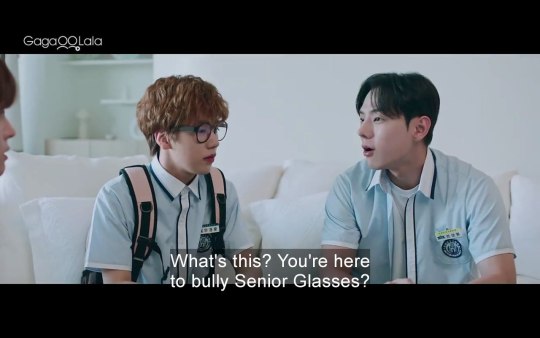
«What's this? You're here to bully Senior Glasses (안경형)?»
And this is where I laughed :D The writers of this show are funny because they keep playing with character's names. In my previous post I talked about how Cha Yeowoon's name got used along with the term "my favourite".
And here, Sangwon shows that he has a nickname for Ahn KyungHoon (안경훈) as Ahnkyung Hyung (안경형), which translates to "Hyung with glasses" aka "Senior Glasses". (Hyung means "older brother/older male friend" in Korean)
So writers literally hid "Glasses" in the surname+name of the character wearing, well, glasses. I don't think it's a cheap move because he is literally a character from the book and other characters-bullies get to use the wordplay. At first I didn't even realize it because I read Ahn as a surname and Kyunghoon as a name, but if you read it all together, there are glasses (ahnkyung) inside 😅
That's it for Episode 2 comments from me! I'm glad you guys are having fun with my notes~
#love for love's sake#kbl#korean bl#kdrama#lfls#love for love's sake meta#love for love's sake comments#korean language#language shenanigans#bl series#dropthemeta
209 notes
·
View notes
Text
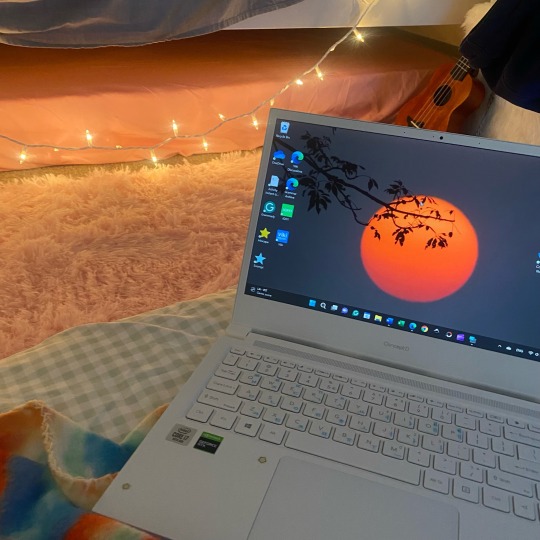
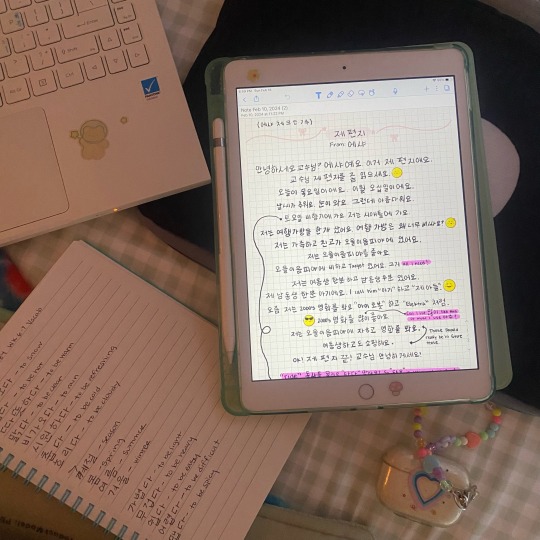
2.18.2024 — 오늘 제 여동생의 방에서 공부해요. 저는 너무 바빠. Besides the chapter quiz, which should really only take 십오 minutes or less, I’m literally taking the day off of work and studying to run errands and clean. 근데, 저는 책상을 샀어요. I’m sort of excited, mostly to decorate my space. It’s pretty small, but I’ll make it my own. Midterms are this week along with normal course work, so here we go!
#college student#studying#korean language#studyblr#language student#language study#studying at home#online student#student#language learning#study blog#study motivation#studying inspo#learning korean#student life#studying korean#hangeul#hangul#college work
182 notes
·
View notes
Text
If you study ANY foreign languages and post about your study logs/journey frequently, please interact with this post because I'd love to follow more langblrs!
#langblr#studyblr#language study#study#korean langblr#chinese langblr#japanese langblr#pali language#korean studyblr#chinese studyblr#japanese studyblr#100 days of productivity#chinese language#korean language#japanese language#pali langblr#pali studyblr#multilingual#polyglot
174 notes
·
View notes
Text
google drive of free korean language learning resources
hi everyone! because i put tutoring on hold while i am working full time but still want to provide help to those who want to start learning/want to practice their korean, i am continuously compiling material for free learning :)
resources are totally free!
most are typically aimed at children (which is great for beginners!!)
hangul practice
vocabulary building
printable/downloadable
example of scans:
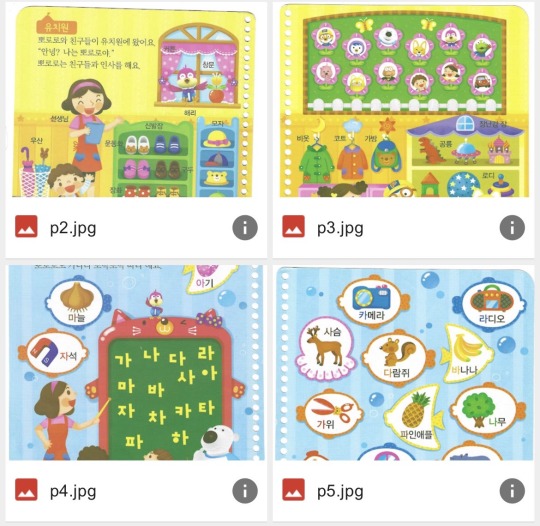
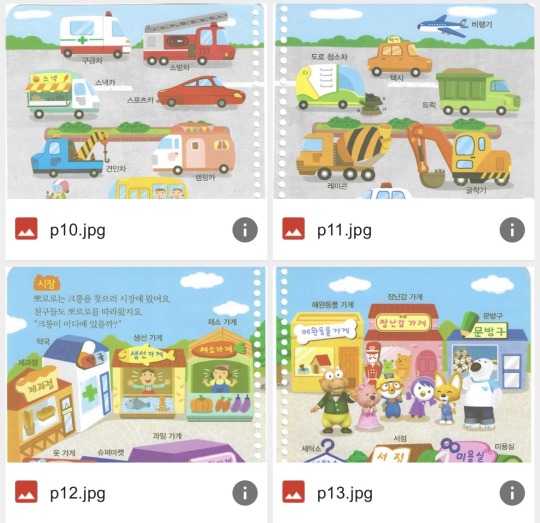
example of grammar breakdowns:
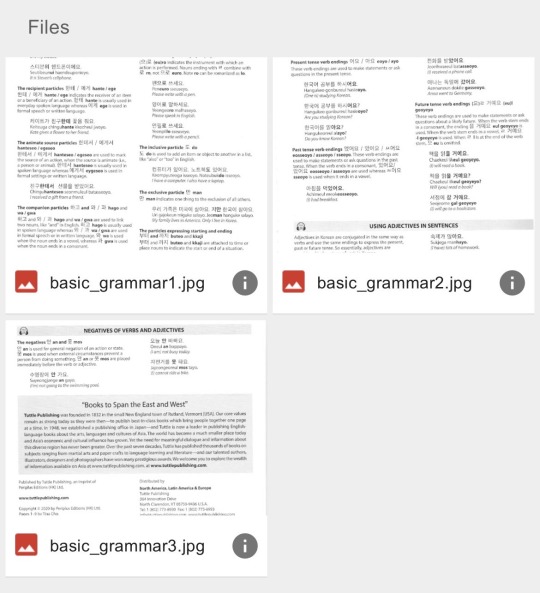
i will be adding material over the coming weeks and continuously as i come across material! updates may be frequent or slow down at times.
note: resources are free, and they’re totally free to share and use! but please do not repost without credit, and because i buy these from my workplace with my own money and spend time scanning them and cleaning them up and organizing them, please consider tipping me as much as you’d like ♥️
here is the link to the drive! (sorry, can’t hyperlink on mobile currently)
enjoy, and thank you in advance! have fun and feel free to ask me any questions—i am a korean studies grad and was a tutor for the beginning korean classes at my university. i am happy to help however i can!
♥️ joey
#ok about to tag the hell out of this sorry in advance#studyblr#study korean#korean#learning korean#hangul#learning hangul#beginner korean#korean study#korean studyblr#korean study notes#한글#한국어 공부하기#한국어공부중#한국어 배우기#korea#korean langblr#korean language#resource#language resources#korean learning#korean learning resource#OK ANYWAYS feel free to reblog like etc#just want to provide some help :)))
2K notes
·
View notes
Text
Today I thought I’d share a translation app that I frequently use to help me study Korean.
It’s called…
🥁🥁🥁
mirinae
This app is great because it not only translates the Korean text you input, but it also breaks down the sentence.
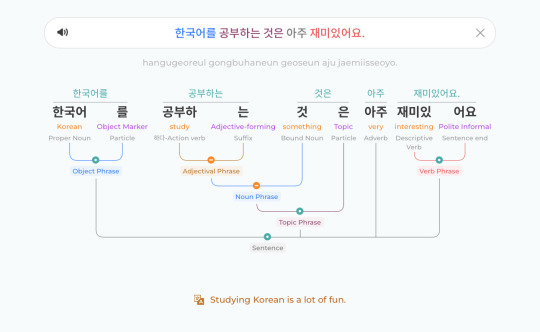
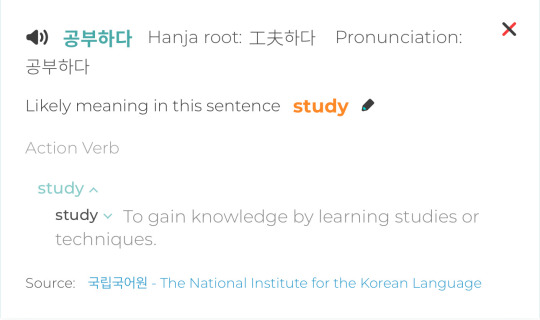
They also have a section called wikinae (which is basically an urban dictionary for Korean) where you can learn Korean slang. Here’s a sample entry from wikinae:

Anyways, that’s all for now.
Happy studying! 👋🏾
154 notes
·
View notes
Note
As a language enthusiast, I thought you'd get a kick out of knowing that the word Ye Chan is using to call Sun Yeol is "haem" (햄). It's not dialect, although they are speaking with an accent. It's actually a slang word for "hyeong" (형). The kicker? It's a slang word used by older generations, kinda like how using "groovy" or "gnarly" would date you as someone who grew up in the 60s. So Ye Chan is coming across as a bit quirky and old-fashioned.
OMG
THANK YOU FOR EXPLAINING THIS!!!
I was wildly curious!
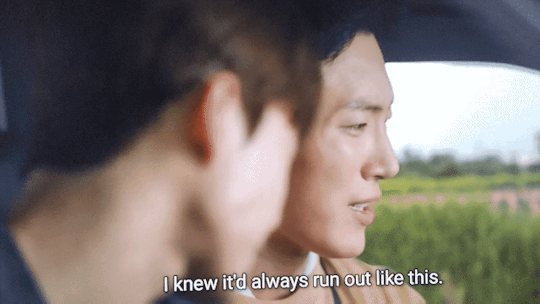
#someone answered the question i didn't ask#and I am so thankful!#asked and answered#korean bl#korean language#korean dialect#KBL#love tractor
363 notes
·
View notes
Text
한국 전래동화에 나오는 어회와 문법 ! - Vocabulary and grammar in traditional Korean fairytales !
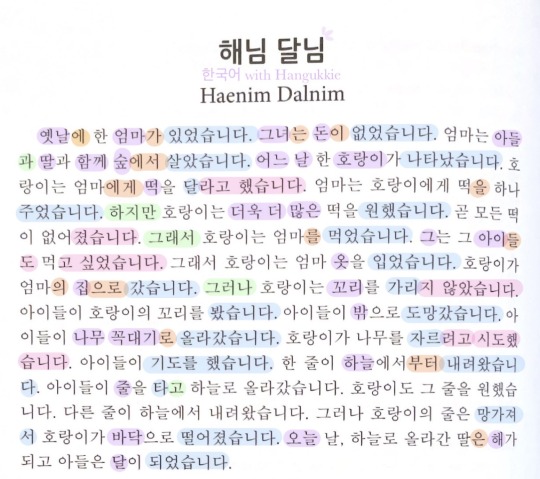
English Translation:
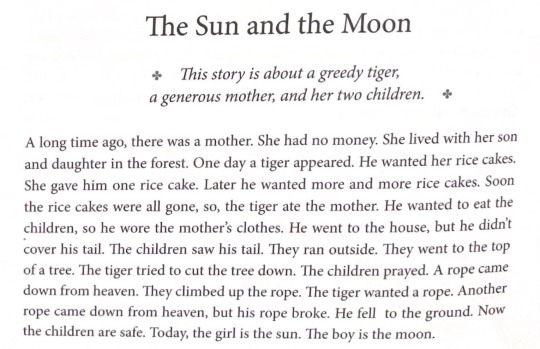
———————————————————
Vocabulary:
옛날 - Olden days
옛날에 - Once upon a time
어머니/엄마 - Mum
그녀 - She/Her
돈 - Money
아들 - Son
딸 - Daughter
함께 - Together
숲 - Forest
어느 - Which
날 - Day
호랑이 - Tiger
떡 - Rice cake
더욱 더 - More and more
많이/많은 - Many/A lot
그 - He/Him
아이 - Kid/Child
아이들 - Kids/Children
옷 - Clothes
집 - House
꼬리 - Tail
밖 - Outside
나무 - Tree
꼭대기 - The top
하늘 - Sky
줄 - Rope
바닥 - Floor
오늘 - Today
해 - Sun
달 - Moon
Grammar - Verbs:
있다 - To exist
없다 - To not exist
살다 - To live
나타나다 - To appear
달다 - To ask/To request (In this context)
주다 - To give
원하다 - To want/To wish/To desire
먹다 - To eat
가다 - To go
가리다 - To cover
보다 - To see
도망가다 - To run away
올라가다 - To go up
자르다 - To cut
기도를 하다 - To pray
내리다 - To get off
떨어지다 - To fall
된다 - To become
Grammar - Sentence Forms:
라고 하다 - For indirect quotations
지다 - To become
도 - Too/Also/As well as
고 싶다 - To want
지 않다 - Is not
려고 - To intend to
시도하다 - To attempt to
Grammar - Connectives:
과 - And/With (With 받침)
하지만 - But
그래서 - So
그러나 - But/However
하고 (고) - And/With
Grammar - Markers/Particles:
에 - To/At (Location and time marker)
가 - Subject particle
는 - Topic particle
이 - Subject particle (With 받침)
에서 - At/In/On/From (Location marker)
에게 - To/For
을 - Object particle (With 받침)
를 - Object particle
들 - Plural marker
의 - Possessive marker
으로 - By/As/For/To/Towards/With (Directional marker)
로 - By/As/For/To/With (Directional marker - with 받침)
부터 - From/Since (Location and time marker)
은 - Topic particle (With 받침)
#korean language#korean langblr#korean#langblr#korean study blog#korean studyblr#study blog#studyblr#korea#korean vocab#korean vocabulary#korean vocab list#Korean stories#Korean fairytales#Korean folktales#korean folklore#한국#한국어#한국어 공부#한국어 읽기#한국어 어휘#한국어 단어#한국어 문법#공부#읽기#어휘#단어#문법#한국 전래동화#전래동화
360 notes
·
View notes
Text
Korean Slang을 좀치네요~
A casual phrase that was been around for a while
뭐뭐.. “좀 하다”
“Done a bit of this / Dabbled in / Done this a bit in my day”
Simply put, it is a playful way of saying someone has done something quite a bit or is pretty good at something. Which is why it’s generally used with the ~네(요) or 거든(요) grammar endings.
For example
“야 너 롤 해??”
“Do you play LoL (League of Legends)?”
“응, 나 좀 하지”
“Yeah, I play a bit”
But this has changed from 하다 (To do) to 치다 (To play a sport or instrument) but still can be used in everyday context.
So instead of saying
“너 베이킹 잘 하네!”
“You’re pretty good at baking!”
You can say
“와아, 이 빵 잘 구웠네. 너 좀 치네”
“Woah, you baked this bread so well. Guess you’re pretty good at baking”
As always, it’s not a direct translation, but you get the gist of it.
이제 구독자분들도 한국어를 좀 치시네요~
(Now you (the readers) know a bit of Korean too)
#korean#한국어#한국어 공부#studyblr#한국어배우기#learning korean#learn korean#slang#korean language#korean slang#language#kpop#korean vocabulary#south korea#seoul
216 notes
·
View notes
Text
Checklist for starting a language
- (if needed) learn the alphabet
- basic grammar for forming words and pronunciation
This process alone would take a few hours maybe 2-3 depending on the difficulty and the difficulty depends on your native language
- 1000 most common words in your native language (translate to target language)
Translate favorite medias into target language
This could be songs, movie quotes, scenes, or anything from your own writing.
Attempt to pronounce these by looking at the writing.
I’ve been making flash cards for alphabet and sounds
I’m new to language learning so if anything I said is less effective than another strategy please let me know.
#language learning#polyglot#study tips#korean language#learn korean#learn japanese#langblr#korean langblr
398 notes
·
View notes
Text
Vocabulary: house (rooms)
2023년 9월 19일
안녕하세요!
Today, we will learn how to say each room of the house!
House: 집
Bathroom: 화장실
Dining Room: 식당
Bedroom: 침실
Kitchen: 부엌
Living room: 거실
Downstairs: 아래층
Upstairs: 윗층
Garage: 차고
Garden: 정원
#gigiskjourney#korean langblr#korean language#korean learning#korean study#korean vocab list#korean vocabulary#learn korean#learning korean#studyblr#south korea#korean grammar#korean#korea#korean study blog#study korean#studying korean#한국어
174 notes
·
View notes
Text

When I have to take public transportation
#transportservice#south korea#korean language#你好星期六#안녕하세요#follow#follow back#forest#fyppage#te sigo#pixel graphics#irl yandere#dreamcore
77 notes
·
View notes
Text
Love for Love's Sake | Things You Didn't Notice #4 | Fight with Homophobes
Honestly, I wanted to dissect these scenes right away but then we got the rest of the show uploaded and the emotions overshadowed me. But now we're diving into informal Korean speech, swearing and slurs! It's going to be a fun post, let's go :D
Disclaimer: I'll be writing down both English and Korean slurs strictly in educational manner, obviously.
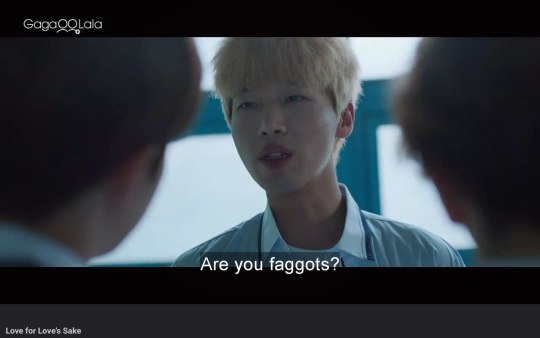
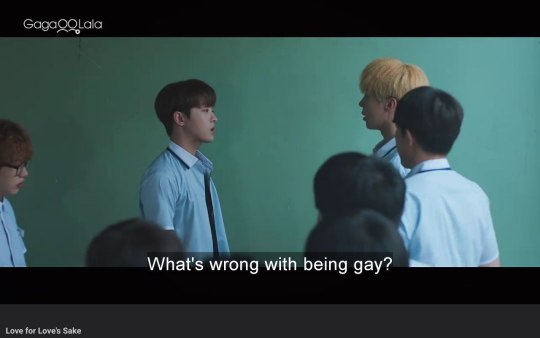
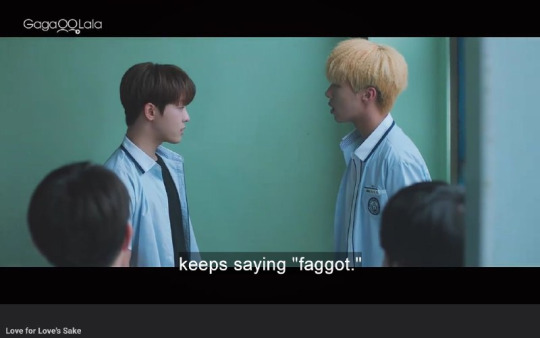
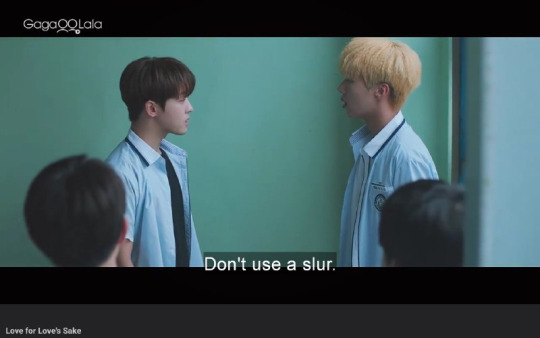
"Fuck. You two are always so fucking close together. (to Myungha) Are you also a faggot (homosekki)? Wow, Kyunghyun's skills are so good."
"Why are you so vulgar? What's wrong with being homo?"
"You're really crazy. Are you criticizing me?"
... (Myungha kisses Tak Junho)
" Ah fu— You damn faggot!"
"We both kissed. I'm not the only one who's homo. You're homo too~"
"You did it yourself, you faggot!"
"Ah, our Junho keeps saying 'homo'. Tss, slurs are forbidden."
"Shut up, you faggot."
"If you call me homo one more time, I can steal your lips for real. (Junho is silent) Ha, afraid you'll be robbed?"
Honestly, I like the translation in subs this time, I just wanted to give you a more technical version (and to show you the difference, because in Gaga subs the f slur is also used by Myungha but it's not exactly that)
So, as far as I noticed, the slur in Korean is a derivative from the term "homosexual" - thanks to the similar sounding, it became "homosekki" (from sekki - asshole, bastard, bitch etc). This is the word Junho keeps using in almost every sentence. And the socially accepted common term is now "gay" (at least, the cast and couple from Korean reality dating show "His Man 2" refers to themselves as 'gay' and not 'homo').
Myungha uses the original term, just "homo", which also gained a negative connotation but doesn't include a 'sekki' swearword. So he keeps saying "homo" to talk back in the language Junho used, only less derogatory. We'll see later but it's amazing, because both Myungha and Sangwon confidently used this word about themselves (Sangwon even went further and proudly reclaimed the slur itself).
Still, Myungha did threaten gangster Junho not to even call him "homo" or any similar terms. And here's the moment which made me laugh: in the next scene with Sangwon, Junho was angry ranting about Myungha, but he caught himself using the slur "homosekki" and quickly changed to the modern and neutral term "gay". LOL
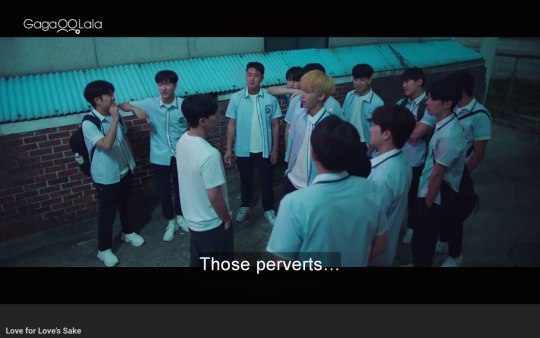
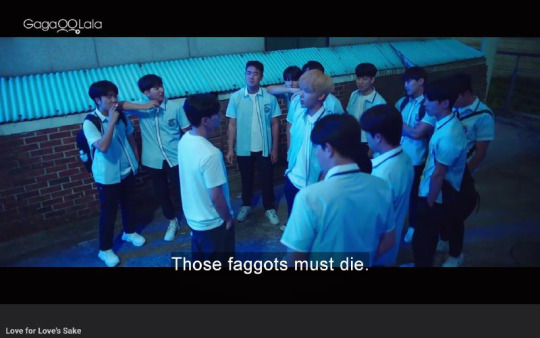
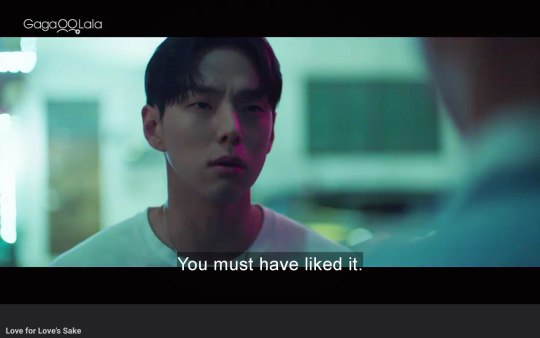
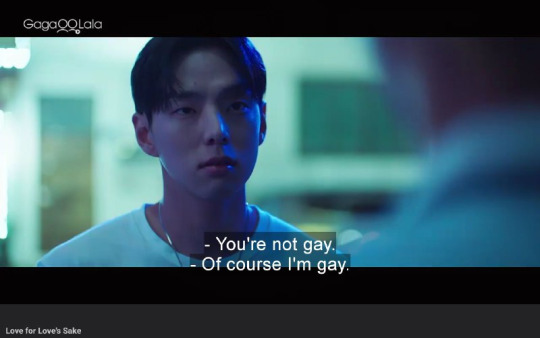
Which is what Gaga subs failed to show it to us. Again, let's see more technical translation:
"I'll go after Tae Myungha and Ahn Kyunghoon soon, just so you know. Those fa– Those gay bastards must die. That fucker Tae Myungha kissed me in the lips, shit. Isn't it fucked up? It was disgusting."
(Sangwon, pouting) "Wow, really? It must've been nice."
"Jeez, you asshole. You're not a victim so you dare talking shit."
"I'm being serious, though?"
(Junho, appalled) "What the hell are you talking about? You're not a faggot."
"I am a faggot, though?"
One, why is it so funny that the first reaction Sangwon had, hearing about Myungha kissing someone in a fight, was: awww :( i wish it was me :((( you so lucky :((
Second, it's hilarious how the gangster ends up the ONLY person who ever uses nice and modern term "gay" once in this show because our protagonists both hit him back with the derogatory terms (Sangwon even attached the slur to himself, when he only liked girls before falling in love with Myungha at first sight, what a legend).
Let's wrap it up with slurs and check out another small detail: informal speech in Korean.
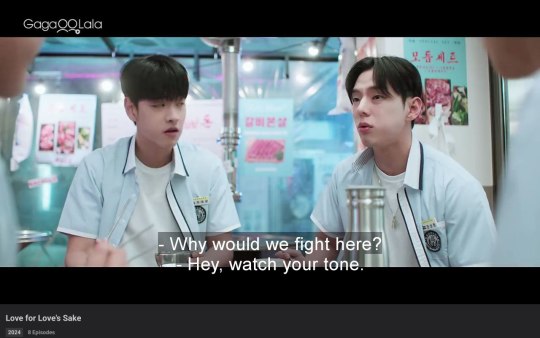
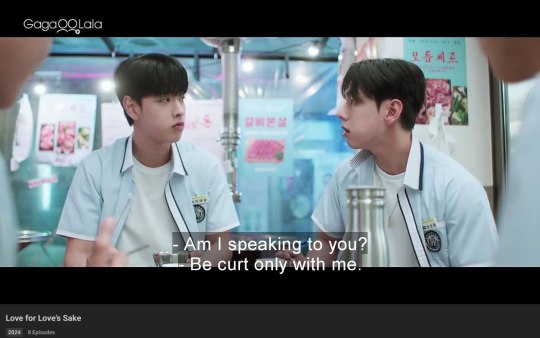
(Sangwon to Myungha)"Why would we fight here?"
(Yeowoon to Sangwon)"Hey, watch your tone (don't use informal speech)"
"Was I talking like that with you?"
"Talk curt (informally) only with me."
"I'm already being curt (talking informally) with you."
This one is definitely a cultural thing that always gets lost in translation (but "being curt" is a nice way of putting it). There are two general styles of speech in Korean: Formal (존댓말, jondemal) and Informal (반말, banmal). Of course, it's a lot more complicated in the language, but I'll paint briefly the differences that are pointed out in the scene.
I talked in previous posts about properly addressing your senior in korean (usually by title/position). To convey respect to your senior, you also use 요 (yo) at the end of the sentences – and both Sangwon and Yeowoon talk politely to Myungha. UNTIL Sangwon uses the rude version of a question, without polite ending ("Why would we fight here?"), to which Yeowoon protests and tells Sangwon that it's banmal, informal speech, and he should only use it with him.
Because with your friends, same age people (Yeowoon and Sangwon in this case) or people younger than you, it's normal to use their names with different intonations (Think Myungha's "Yeowoon-ah, Yeowoon-ie") and talk informally.
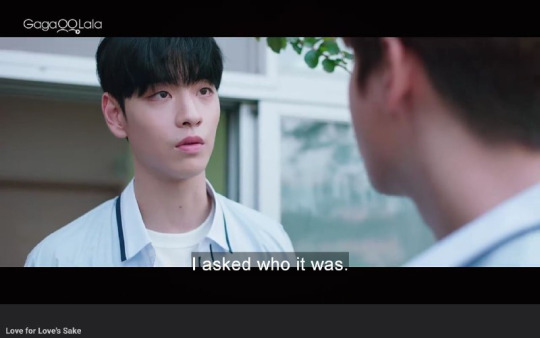
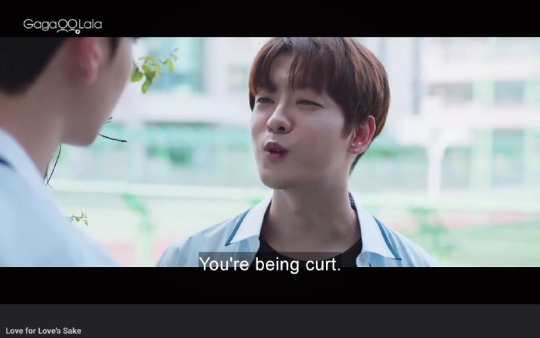
(Yeowoon to Myungha) "I asked who it was."
"You're being curt (that's an informal speech)".
Fast forward – Yeowoon loses patience and demands Myungha "I asked who it was", question without polite ending as well. To which Myungha cheekily says "that was an informal speech", reminding Yeowoon of his own remark to Sangwon.
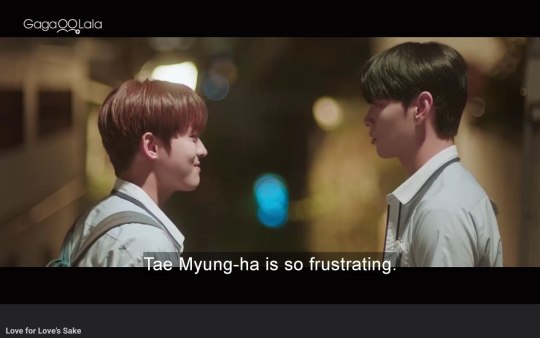
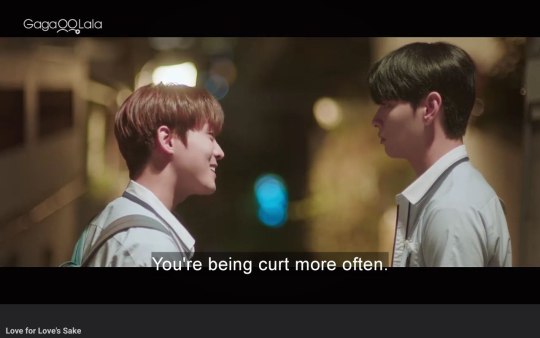
Fast forward again – and now I have to take back my previous statement from another post that Yeowoon never called Myungha by his name because I found the rare case of him doing it xD
"Tae Myungha is so frustrating."
"You're speaking informally more often these days."
Again, a youngster! calling his senior! by his own name! Not using the polite ending! The horrors of informal speech. He's not being too rude but he's sulking therefore he's rebelling. Though I can swear, again, Yeowoon hears Myungha's scolding and resorts back to speaking politely, and from now on, he'll keep using 'senior'.
If you survived until the end of this post, congratulations! The second half probably wasn't needed but in case you're learning Korean or you want to know why these seemingly normal phrases are being considered "curt" out of nowhere, I hope you understand it now a little bit better :)
// Previous messages translation + other language moments here //
#love for love's sake comments#watch me writing my own course Learning Korean with Kdramas on tumblr#but that fight dialogue scene was just perfect i couldn't resist#the exchange and usage of different terms was funny and the scene was hilarious on its own#sangwon and myungha are my heroes#love for love's sake#love for love's sake meta#bl meta#korean bl#korean drama#love supremacy zone#dropthemeta#korean language#linguistics#language
164 notes
·
View notes